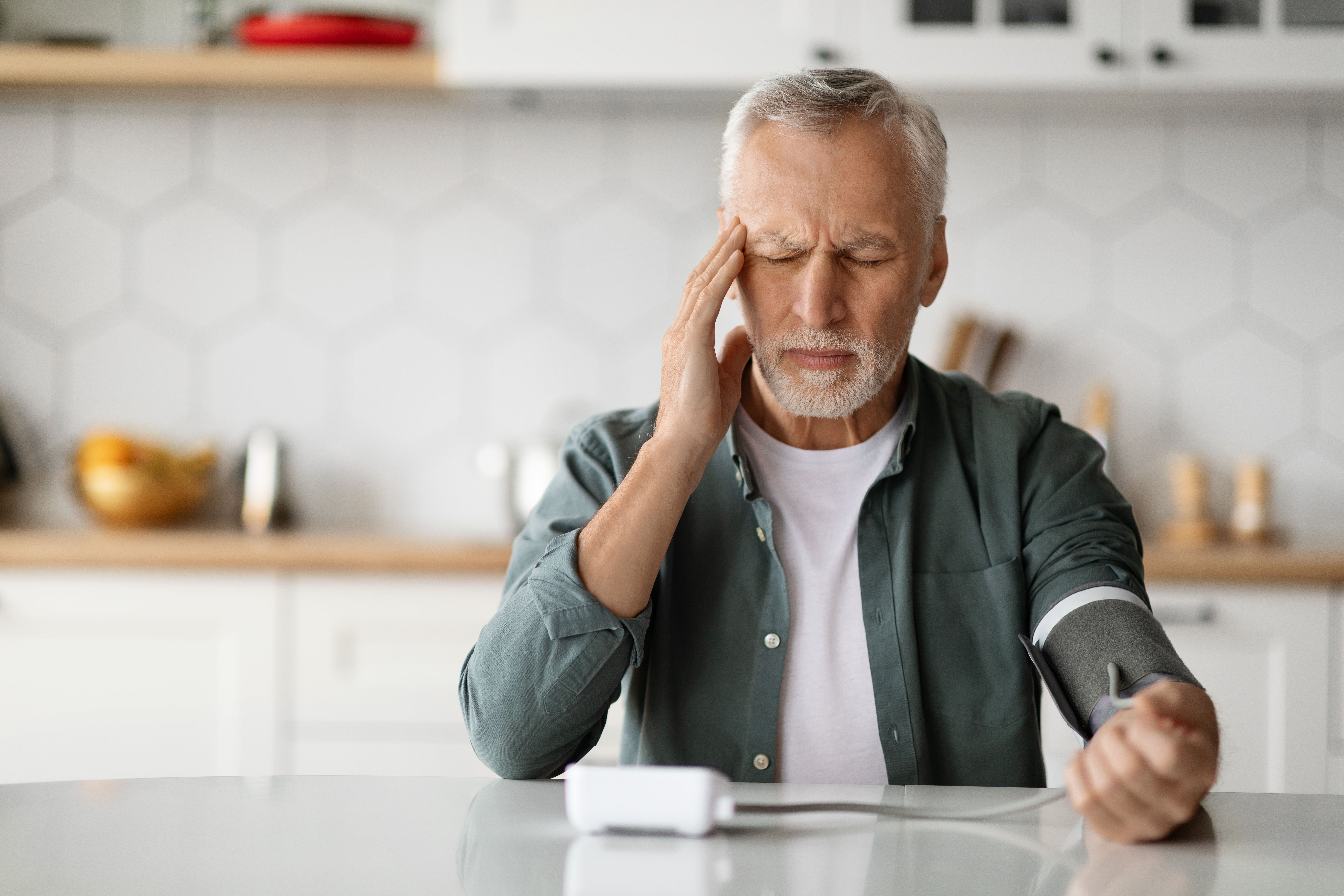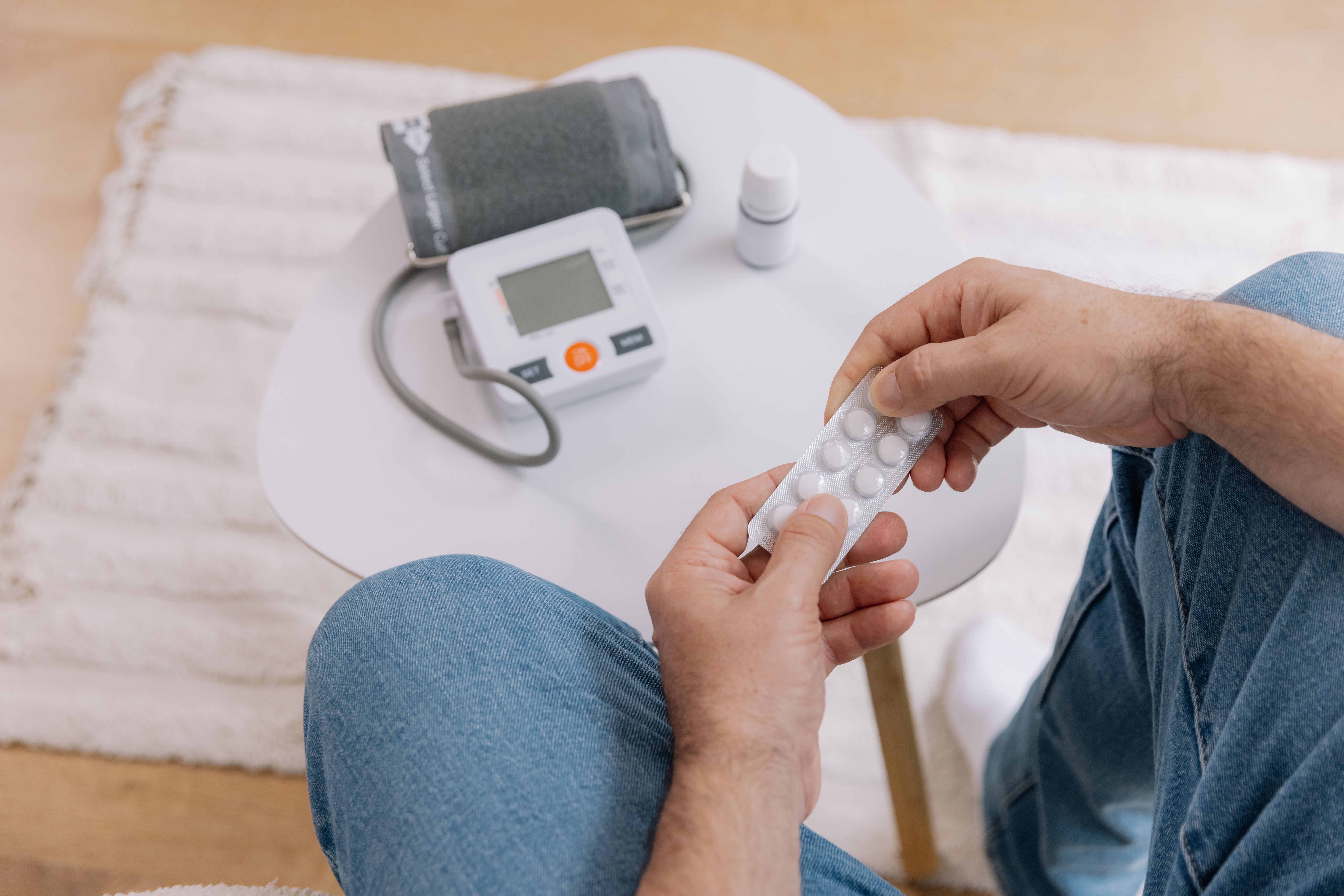How to recognize and manage acute high blood pressure symptoms

Elevated blood pressure symptoms may appear suddenly and indicate a serious situation when your blood pressure is high enough to cause organ damage.
Acute high blood pressure symptoms: what does it mean?1-4
High blood pressure is a common condition that affects the body's arteries. It is also called hypertension. If you have high blood pressure, the force of the blood pushing against the artery walls is consistently too high. The heart must work harder to pump blood.
Blood pressure is measured in millimeters of mercury (mm Hg). In general, hypertension is a blood pressure reading of 140/90 mm Hg or higher. Untreated, high blood pressure increases the risk of heart attack, stroke, and other serious health problems.
A blood pressure range higher than 180/120 mm Hg is considered a hypertensive emergency or crisis, as it is a potentially life-threatening, resulting in rapid end organ damage and/or death. Uncommon, only 1% to 3% of people with hypertension will experience a hypertensive emergency during their lifetime. Sustained levels of this acute, marked elevation in blood pressure is associated with signs of organ damage, that can include:
- Pulmonary edema
- Cardiac ischemia
- Neurologic deficits
- Acute renal failure
- Aortic dissection
- Eclampsia, which is a severe progression of preeclampsia
What are the acute high blood pressure symptoms?1,3
During a hypertensive crisis, the heart may not be able to pump blood as well as it should. This can lead to profound elevated blood pressure symptoms such as:
- Shortness of breath
- Swelling of the feet, lower legs, and ankles
- Confusion
- Blurred vision
- Transient loss of vision
- Seizures
- Anxiety
- Chest pain
- Blood in urine
- Nausea and vomiting
- Nonresponse to stimulation, called unresponsiveness
- Severe headache
- Loss of consciousness
What can be the causes of acute elevated blood pressure symptoms?1,3,4
Most acute elevated blood pressure symptoms occur in people diagnosed with chronic hypertension. Oftentimes, multiple factors are involved.

Failure to take your high blood pressure medications or suddenly stopping treatment is one of the most common causes of acute high blood pressure symptoms.
The causes of acute high blood pressure symptoms include:
- Forgetting to take blood pressure medicine
- Suddenly stopping certain heart medicines, including beta-blockers
- Medicine interactions
- Tumor of the adrenal gland, called a pheochromocytoma
- Medical conditions such as advanced chronic kidney disease, certain hormonal disorders, and preeclampsia, which corresponds to high blood pressure during pregnancy
Furthermore, a class of drugs called sympathomimetics can cause elevated blood pressure symptoms, particularly in those with uncontrolled hypertension. These include commonplace drugs such as:
- Epinephrine, used to treat anaphylaxis
- Asthma bronchodilators
- Decongestants containing pseudoephedrine
- Appetite suppressants
- Stimulants, used to treat attention-deficit/hyperactivity disorder (ADHD)
- Cocaine and methamphetamine
What to do if you experience acute elevated blood pressure symptoms?1-3,5
Experiencing elevated blood pressure symptoms can be a medical emergency. It can lead to a heart attack, stroke, or other life-threatening health problems.

If left untreated, acute high blood pressure can start to damage blood vessels and body organs, including:
- Brain
- Heart
- Kidneys
- Eyes
This can lead to an irreversible condition called hypertension-mediated organ damage, complications of which may include:
- Unstable angina (chest pains)
- Pulmonary edema (fluid in the lungs)
- Optic nerve damage
- Acute kidney failure
- Heart attack
- Aortic aneurysm (a bulge in a major blood vessel servicing the heart)
- Hemorrhagic stroke (stroke caused by a ruptured blood vessel in the brain)
If you get a very high blood pressure reading at home and don't have any symptoms, relax for a few minutes. Then check your blood pressure again. And call emergency medical services if your blood pressure is still very high—180/120 mm Hg or greater—and if you have chest pain, shortness of breath, or symptoms of stroke, including:
- Numbness or tingling
- Loss of feeling in the face, arm, or leg, often on just one side of the body
- Trouble walking
- Trouble speaking
- Changes in vision
Acute high blood pressure symptoms accompanied by acute organ injury requires immediate treatment—to quickly lower blood pressure with intravenous or oral antihypertensive agents based on the type of organ damage—in an intensive care unit of a hospital.